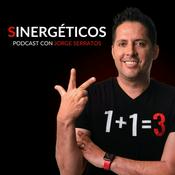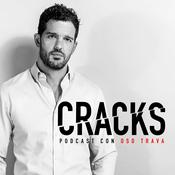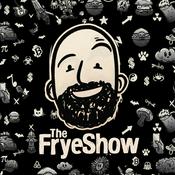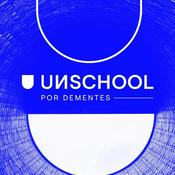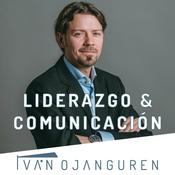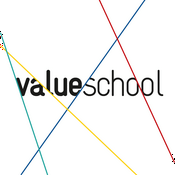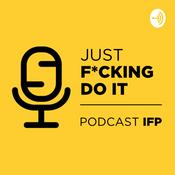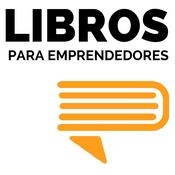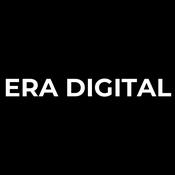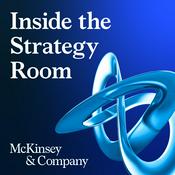1289 episodios
Why Getting Paid Stole Your Drive and How to Get Into the Flow Again (Career Growth Accelerator)
11/2/2026 | 22 minDo you remember the early days of your career? You likely spent hours coding late into the night, fueled not by a paycheck, but by the sheer joy of building. But somewhere along the way, that intrinsic fire faded, replaced by the extrinsic motivators of Jira tickets, performance reviews, and ultimately the almighty dollar.
In this episode of the Career Growth Accelerator, I explore why this shift happens and how it might be the very thing keeping you stuck. We discuss the "Overjustification Effect"—how getting paid for your passion can actually degrade your performance—and how to reclaim the autotelic personality required to enter a flow state and accelerate your career.
• The Overjustification Effect: Learn why introducing extrinsic rewards (like a salary) for a task you inherently enjoy can weaken or completely replace your intrinsic motivation, eventually making the work feel like a chore.
• The Loss of Flow: Discover how moving from hobbyist to professional changes your relationship with the work, often stripping away the conditions necessary for "flow state," such as risk-taking and immediate feedback.
• Autotelic Personality: Understand the concept of being "autotelic"—doing something for its own sake—and why this trait is critical for high-quality, creative work that pushes your career forward.
• The Stagnation Trap: Recognize that if your only motivation is doing what is required to get paid, you are unlikely to take on the voluntary challenges necessary to grow to the next level.
• Reclaiming Your Drive: I discuss how finding pockets of intrinsic motivation—even if they are ancillary to your main job—can reignite your ability to enter flow, improve your work quality, and break through career plateaus.
🙏 Today's Episode is Brought To you by:
If you are building an application that needs real-time search results—especially if you are working with LLMs—you know that stale data is a problem. SerpApi is the live web search API for your application.
• Get real-time search results fast, directly in your app as JSON.
• Bridge the gap for LLMs that are locked to a training date.
• Trusted by companies like NVIDIA, Adobe, and Shopify. Get started with a free tier to build your full integration before you commit. Go to serpapi.com
📮 Ask a Question
If you enjoyed this episode and would like me to discuss a question that you have on the show, drop it over at: developertea.com.
📮 Join the
If you want to be a part of a supportive community of engineers (non-engineers welcome!) working to improve their lives and careers, join us on the Developer Tea Discord community today!
🧡 Leave a Review
If you're enjoying the show and want to support the content, head over to iTunes and leave a review!The Meta-Habit of High Performers: How Outer Loops Unlock Growth (Career Growth Accelerator)
03/2/2026 | 25 min🎧 Episode Notes: The Meta-Habit of High Performers: How Outer Loops Unlock Growth
In today's episode, we are discussing one of the most common habits I see in high-performing managers and senior engineers. It isn't a single trick, a morning routine, or a specific productivity hack—it is a meta-habit. It is a specific way of thinking about how you spend your energy and time to avoid the burnout that comes from working hard without seeing commensurate gains,.
The Burnout Trap: Understand that if you keep putting more energy in without getting equal or greater results out (sub-linear returns), you are heading for a wall. You cannot simply "grind" your way to the next level,.
Recognize Your Default Loops: Whether you know it or not, you are already running "loops"—automatic heuristics and behaviors that define your decisions, like "while happy at job, stay at job",.
The Inner vs. Outer Loop: Learn the difference between the Inner Loop (your execution, habits, and daily protocols) and the Outer Loop (the meta-observation that evaluates the system).
Governing the Experiment: Discover how to use an Outer Loop to set longer-term conditionals for your career experiments (e.g., "I will try this until X"), preventing you from reacting emotionally to single data points,.
Systematic Evaluation: Move from making random changes to making informed adjustments by stepping out of the daily grind to evaluate the trajectory of your habits,.
🙏 Today's Episode is Brought To you by: Unblocked
There’s a good chance you’ve already tried a few AI code review tools — and you’re probably ignoring most of their comments.
Not because AI can’t review code, but because it’s missing context. Most AI reviewers focus on surface-level issues: style nits, obvious refactors, or restating what’s already clear from the diff. Meanwhile, the things you actually care about, like whether a change violates an earlier architectural decision or quietly duplicates existing logic, go unnoticed.
That’s the problem Unblocked is built to solve.
Unblocked’s AI code review is grounded in decision-grade context, prior PRs, design discussions, documentation, and system-level constraints—the same context senior engineers rely on when reviewing code.
Teams using Unblocked report fewer comments, higher signal, and automated reviews they actually trust — enough that many have turned off other AI review tools entirely.
Even if you’ve already written off AI code review, Unblocked is worth a look.
Get a free three-week trial at getunblocked.com/developertea.
📮 Ask a Question
If you enjoyed this episode and would like me to discuss a question that you have on the show, drop it over at: developertea.com.
📮 Join the Discord
If you want to be a part of a supportive community of engineers (non-engineers welcome!) working to improve their lives and careers, join us on the Developer Tea Discord community by visiting https://developertea.com/discord today!
🧡 Leave a Review
If you're enjoying the show and want to support the content head over to iTunes and leave a review! It helps other developers discover the show and keep us focused on what matters to you.Career Growth Accelerator - Promotion Roadblocks and Knocking it Out of the Park During Performance Review Season
28/1/2026 | 31 minIt is review season, and you might be finding yourself confused: you received high ratings and "exceeded expectations," yet the promotion you expected didn't happen. In this episode of the Career Growth Accelerator, I break down exactly why high performance doesn't always lead to promotion, helping you identify the structural roadblocks and strategic shifts necessary to move from senior individual contributor to staff, principal, or leadership roles,.
• Understand why your performance review is never conducted in a vacuum and why your manager’s peers—not just your manager—are the "voters" you need to convince with clear evidence,.
• Learn why high ratings often fail to translate into a promotion if you haven't demonstrated specific impact on the company's strategic goals rather than just your own deliverables.
• Discover the first major roadblock: Structural limitations where the role you want simply doesn't exist because the business context or organizational pyramid doesn't currently support it,.
• Explore the concept of "Outer Layers" of scope—moving from self-focus to team-focus, and finally to business-strategy focus—to unlock the next stage of your career,,.
• Identify the "indispensable trap" where performing too well at your current inner-layer responsibilities makes you terminal in your role rather than promotable.
🙏 Today's Episode is Brought To you by: Unblocked
There’s a good chance you’ve already tried a few AI code review tools — and you’re probably ignoring most of their comments.
Not because AI can’t review code, but because it’s missing context. Most AI reviewers focus on surface-level issues: style nits, obvious refactors, or restating what’s already clear from the diff. Meanwhile, the things you actually care about, like whether a change violates an earlier architectural decision or quietly duplicates existing logic, go unnoticed.
That’s the problem Unblocked is built to solve.
Unblocked’s AI code review is grounded in decision-grade context, prior PRs, design discussions, documentation, and system-level constraints, the same context senior engineers rely on when reviewing code.
Teams using Unblocked report fewer comments, higher signal, and automated reviews they actually trust — enough that many have turned off other AI review tools entirely.
Even if you’ve already written off AI code review, Unblocked is worth a look.
Get a free three-week trial at getunblocked.com/developertea.
🎥 Subscribe to our Youtube Channel here! https://www.youtube.com/@developertea
📮 Ask a Question
If you enjoyed this episode and would like me to discuss a question that you have on the show, drop it over at: developertea.com.
📮 Join the
If you want to be a part of a supportive community of engineers (non-engineers welcome!) working to improve their lives and careers, join us on the Developer Tea Discord community by visiting https://developertea.com/discord today!
🧡 Leave a Review
If you're enjoying the show and want to support the content head over to iTunes and leave a review! It helps other developers discover the show and keep us focused on what matters to you.Career Growth Roadmap - De-risking Your Career By Understanding Your Vulnerabilities
20/1/2026 | 15 minIn this episode, we explore how to de-risk your career roadmap by identifying the hidden vulnerabilities that hold your decision-making hostage.
🎧 Episode Notes: De-risking Your Career By Understanding Your Vulnerabilities
True career growth requires gaining autonomy over your choices. This episode provides a framework for performing a "pre-mortem" of career failure by identifying the sources of power that currently influence your life and limiting their leverage over your future.
Identify Your Sources of Power: Perform an exercise to list the people, situations, and physical things (like money or debt) that drive your current decision-making and could shift your behavior if they changed.
Conduct a Career "Pre-mortem": Use this diagnostic approach to recognize what has the power to change your decisions, helping you prepare for potential failures before they occur.
Understand the "Hostage" Dynamic: Realize that while some leverage is aligned with your values, other factors—like large amounts of debt—can hold your career hostage, forcing you to make decisions you otherwise wouldn't.
Balance Vulnerability and Autonomy: Distinguish between healthy vulnerability (such as in relationships with family) and unhealthy vulnerability (such as with creditors), and work to de-risk the latter to reclaim your agency.
The Link Between Debt and Career Risk: Learn how eliminating financial vulnerabilities, like credit card debt, increases your autonomy, potentially allowing you to take "principled" career risks you previously couldn't afford.
Re-evaluate Your Non-Negotiables: Use introspection to determine which parts of your job are truly essential and which "imagined" risks are preventing you from seeking better alignment with your personal purpose.
Shift Your Control Systems: Understand that growth often requires giving up control in one area (like spending habits) to gain control and autonomy in your professional path.
🙏 Today's Episode is Brought To you by: Wix Studio
Devs, if you think website builders mean limited control—think again. With Wix Studio’s developer-first ecosystem you can spend less time on tedious tasks and more on the functionalities that matter most: ● Develop online in a VS Code-based IDE or locally via GitHub. ● Extend and replace a suite of powerful business solutions. ● And ship faster with Wix Studio’s AI code assistant. All of that, wrapped up in auto-maintained infrastructure for total peace of mind. Work in a developer-first ecosystem. Go to wixstudio.com.
📮 Ask a Question
If you enjoyed this episode and would like me to discuss a question that you have on the show, drop it over at: developertea.com.
📮 Join the Discord
If you want to be a part of a supportive community of engineers working to improve their lives and careers, join us on the Developer Tea Discord community today!
🧡 Leave a Review
If you're enjoying the show and want to support the content, head over to iTunes and leave a review!Career Growth Accelerator - Assessing Yourself - Using a Nine-Block to Map Your Skill, Potential, and Energy Investment
13/1/2026 | 28 min🎧 Episode Notes: Using a Nine-Block for Skill, Potential, and Energy Investment
Most career assessments try to paint a static picture of what you can do well with the least effort, but they often fail to provide a practical roadmap for your next career move. This episode provides a simplified, multidimensional version of a classic management tool to help you prioritise your growth:
Understand the Nine-block Matrix: Visualise a grid where the x-axis represents your current performance (how well you are doing now) and the y-axis represents your potential (your capacity to grow to the next level).
The Energy Dimension: Go beyond a 2D map by evaluating the energy cost of each skill on a scale of 1–5; this helps you identify where you are on "autopilot" versus where a skill is draining you.
The Risk Factor: Assign a risk or criticality score to your skills to determine which are "fundamental" to your role (like software delivery) and which can be safely dropped to make room for more valuable growth.
Spot Opportunity Flags: Identify areas where you have high potential but low performance and low energy output; these represent your best opportunities for rapid improvement with the least input.
Make the Counterintuitive Trade-off: Learn why you might need to drop a skill you are already good at if it has low growth potential, redirecting that energy toward a new skill that offers higher long-term value for your career.
Categorise Your "Bread and Butter" Skills: Recognise those mid-level skills that ensure your reliability and help you get the job done but shouldn't be the primary focus of your intense energy and development.
📮 Ask a Question
If you enjoyed this episode and would like me to discuss a question that you have on the show, drop it over at: developertea.com.
📮 Join the Discord
If you want to be a part of a supportive community of engineers (non-engineers welcome!) working to improve their lives and careers, join us on the Developer Tea Discord community today! I am in there as well, and you can message me directly.
🧡 Leave a Review
If you're enjoying the show and want to support the content, head over to iTunes and leave a review! It helps other developers discover the show and keeps us focused on what matters to you.
Más podcasts de Economía y empresa
Podcasts a la moda de Economía y empresa
Acerca de Developer Tea
Developer Tea exists to help driven developers connect to their ultimate purpose and excel at their work so that they can positively impact the people they influence.
With over 17 million downloads to date, Developer Tea is a short podcast hosted by Jonathan Cutrell, engineering leader with over 15 years of industry experience. We hope you'll take the topics from this podcast and continue the conversation, either online or in person with your peers. Email: [email protected]
Sitio web del podcastEscucha Developer Tea, SINERGÉTICOS y muchos más podcasts de todo el mundo con la aplicación de radio.net
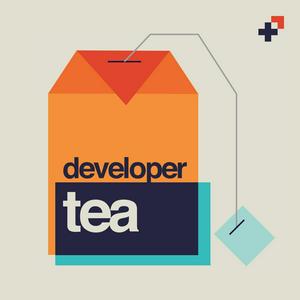
Descarga la app gratuita: radio.net
- Añadir radios y podcasts a favoritos
- Transmisión por Wi-Fi y Bluetooth
- Carplay & Android Auto compatible
- Muchas otras funciones de la app
Descarga la app gratuita: radio.net
- Añadir radios y podcasts a favoritos
- Transmisión por Wi-Fi y Bluetooth
- Carplay & Android Auto compatible
- Muchas otras funciones de la app


Developer Tea
Escanea el código,
Descarga la app,
Escucha.
Descarga la app,
Escucha.

